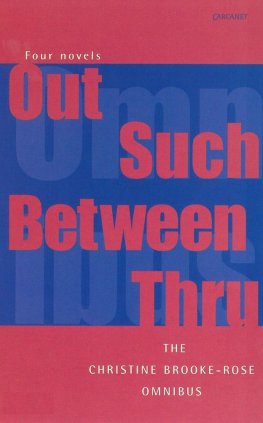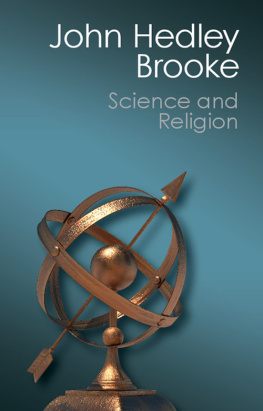Seven Months in Rural Chad
John Brooke
Austin Macauley Publishers
2020-10-30
Seven Months in Rural Chad
About the Author
Born in 1942, the author is a medical doctor who has practiced in the United Kingdom, France and later as a volunteer doctor with Mdecins Sans Frontires (Doctors Without Borders).
Dedication
This book is dedicated to my friends and colleagues in Mdecins Sans Frontires and to all who have attempted to redress the injustices and wrongs to which the population of the African continent has been subjected.
Copyright Information
John Brooke (2020)
The right of John Brooke to be identified as author of this work has been asserted by the author in accordance with section 77 and 78 of the Copyright, Designs and Patents Act 1988.
All rights reserved. No part of this publication may be reproduced, stored in a retrieval system, or transmitted in any form or by any means, electronic, mechanical, photocopying, recording, or otherwise, without the prior permission of the publishers.
Any person who commits any unauthorised act in relation to this publication may be liable to criminal prosecution and civil claims for damages.
Austin Macauley is committed to publishing works of quality and integrity. In that spirit, we are proud to offer this book to our readers; however, the story, the experiences, and the words are the authors alone and portrayed to the best of their recollection. In some cases, names and details have been changed to protect the privacy of the people involved.
A CIP catalogue record for this title is available from the British Library.
ISBN 9781528974974 (Paperback)
ISBN 9781528974998 (ePub e-book)
www.austinmacauley.com
First Published (2020)
Austin Macauley Publishers Ltd
25 Canada Square
Canary Wharf
London
E14 5LQ
Other books by the same author
The Physiological Basis of Immediate Care Medicine
Scottish Academic Press, Edinburgh 1999
Monotheisme, La Voie vers le Dsequilibre et le Conflit
Editions Perse, Aix-en-Provence, France 2009
Monotheism, The Route to Disharmony, Divisions and Conflict
Austin Macauley Publishers. London, Cambridge, New York, Sharjah 2018
The North Cape. A Journey by Motorbike.
Austin Macauley Publishers. London, Cambridge, New York, Sharjah 2020
Contributor to the following book
Principles and Practice of Trauma Nursing
Edited by Rose Ann OShea
Elsevier Churchill Livingston UK 2005
Authors Note
I have tried to recreate events, locales and conversations from my memories of them. In order to maintain their anonymity in some instances, I have changed the names of individuals and places; I may have changed some identifying characteristics and details such as physical properties, occupations and places of residence.
Preface
John Brooke is not just a doctor; he is also a poet and a scholar. He spent seven months in a southern Chad village in a project fighting the malaria that is endemic to this region. Seven months that visibly moved him deeply, to such an extent, that he felt the need to share his experience, adventures and thoughts by writing this book.
The books first six chapters are devoted to sub-Saharan Africas history, beginning with the discovery of the The Old Man of the Djurab Desert, our ancestor born between 6 and 7 million years ago. Like some historians, John Brooke believes that before the African continent was invaded by Europeans, there were 10,000 independent and autonomous kingdoms.
In the ninth century, a Muslim army crossed the Sahara to spread their religion to North Africa. In the fifteenth century, Catholic priests, accompanied by hundreds of soldiers, began penetrating into West Africa. This was followed by the period of slavery that probably emptied half of the population in Sub-Saharan Africa. Over four centuries, 12 million Africans crossed the Atlantic to work as enslaved manpower in the Americas. Then Europe carved up the African pie at the Berlin conference in 1885. It was the era of colonisation.
So why does John Brooke remind us of these historical facts? Probably because he feels that they are still present and play a role in the collective subconscious of the people, we at Mdecins Sans Frontires encounter in our medical activities. The MSF Movements European volunteers should possess a minimum of historical culture and be able to assess it to better understand the people they are there to help.
Moreover, like most anthropologists, John Brooke, who has already written about monotheism (Monotheism, The Route to Disharmony, Divisions and Conflict) thinks that African polytheism and animism correspond more to the peoples tribal structure and their respect for the natural environment. It is what probably accounts for their representation of disease that differs from our physio-pathological explanations.
John tells about everything upon his arrival in Moissala, the village where he set up with his team of caregivers. He marvelled at the trees, the round cob huts, the flowers that blossomed with the first rains, the cotton fields, the herds of cattle, a termite mound or a small grocery shop. It makes us want to learn about this village and its people, under whose charm our good doctor fell.
The purpose of this trip was the seasonal outbreak of malaria that especially kills small children. John Brooke carefully explains in terms easy to understand, even by novices, the infernal cycle of this parasite-borne disease, vectored by mosquitoes, as well as its treatment with a medication of Chinese origin, Artesunate, which more often than not results in miraculous cures. 2,000 children treated and cured in Moissala and this during the contagious malaria season.
I highly recommend this work to you, and not only to those volunteers travelling to Chad, but for everyone interested in the humanitarian adventure and those who think that discovering other communities than their own is still very enriching, especially if you are, like John, curious about everything.
Mgo Terzian
President, Mdecins Sans Frontires, France
Introduction
It is now four years since I returned from my mission as a volunteer doctor working for Mdecins Sans Frontires at Moissala, a small town situated in the south of Chad, not far distant from the Central African Republic.
Having completed this mission and having achieved not far off a half century of medical practice, I decided to retire and have since travelled widely and met many from all walks of life.
If, during conversations, it is revealed that one has visited and worked in Africa, ones interlocutors will always show an increased interest, for Africa remains a mysterious and unknown continent.
Furthermore, when one enquires of those who have visited Africa, one discovers that few have ventured beyond a capital city and the luxury of a first-class hotel.
In reality, even for those who may wish to discover the remote parts of rural Africa, the lack of roads and organised transport makes such a project difficult in the context of such a vast continent.











